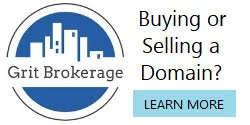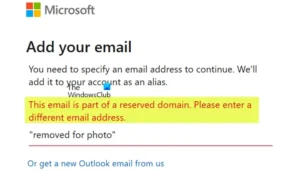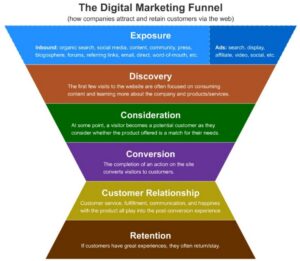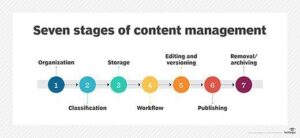Have you ever wondered what makes a domain name premium? You know, those domain names that seem to stand out from the rest, commanding higher prices and attracting more attention. Well, my friend, you’re in luck because today we’re going to dive deep into the world of premium domain names and uncover the secrets behind their allure.
A premium domain name is like the VIP section of the internet. It’s the online equivalent of a prime piece of real estate in a bustling city. Just like location is everything in the physical world, a premium domain name holds immense value in the virtual realm. But what exactly sets these domain names apart? Is it their length, their keywords, or their catchy phrases? Well, it’s a bit of everything. A premium domain name is a perfect balance of memorability, brandability, and marketability. It’s short, snappy, and easy to remember, making it an ideal choice for businesses looking to establish a strong online presence. Additionally, premium domain names often contain keywords that are relevant to a particular industry, helping them rank higher in search engine results and attracting targeted traffic. So, if you’re in the market for a domain name that screams “premium,” buckle up because we’re about to embark on an exciting journey through the world of digital real estate. Get ready to discover the key ingredients that make a domain name truly special.
A premium domain name stands out from the crowd and offers several key features. Firstly, it should be short, memorable, and easy to spell. Unique and brandable domain names also hold value. Additionally, a premium domain should have a relevant keyword or industry-specific term. Domain extension is crucial too, with .com being the most desirable. Lastly, a premium domain should be free from any legal issues or trademark conflicts. Investing in a premium domain name can yield long-term benefits for businesses and individuals alike.

What Makes a Domain Name Premium?
Domain names play a crucial role in establishing an online presence. They serve as the digital address for websites and are often the first impression that potential visitors have of a brand. While there are millions of domain names to choose from, not all are created equal. Some domain names stand out as premium options, commanding higher prices and attracting greater attention. But what exactly makes a domain name premium? In this article, we’ll explore the characteristics and factors that contribute to the premium status of a domain name.
Relevance and Memorability
One key factor that sets premium domain names apart is their relevance and memorability. A premium domain name is typically concise, easy to remember, and directly related to the industry or niche it represents. It captures the essence of the brand or the products and services it offers, making it instantly recognizable and memorable to potential visitors. A relevant and memorable domain name helps build trust and credibility, as it gives the impression that the website is a trusted source within its field.
Additionally, premium domain names often feature keywords that are highly relevant to the industry or niche. These keywords can help improve search engine rankings, making it easier for potential visitors to find the website. For example, a premium domain name for a fitness blog might include keywords like “fitness,” “health,” or “wellness.” By incorporating relevant keywords into the domain name, the website can attract targeted traffic and increase its visibility in search engine results.
Brandability and Brand Recognition
Another important aspect of premium domain names is their brandability and brand recognition. A premium domain name should have the potential to become a recognizable brand in its own right. It should be unique and distinctive, setting it apart from competitors and making it memorable to potential customers. A strong brandable domain name can help create a lasting impression and foster brand loyalty.
Premium domain names often have a certain “wow” factor that makes them stand out. They evoke emotion, curiosity, or intrigue, making people want to explore the website further. These domain names have the power to create a sense of trust and professionalism, which can be invaluable in building a successful online business or brand. When potential customers see a premium domain name, they are more likely to associate it with quality and reliability.
In addition to brandability, premium domain names also benefit from brand recognition. Over time, as a website with a premium domain name gains traction and builds a strong online presence, its domain name becomes synonymous with its brand. People begin to recognize the domain name and associate it with the products, services, or content offered by the website. This brand recognition can lead to increased traffic, repeat visitors, and ultimately, higher conversions.
Now that we’ve explored the importance of relevance, memorability, brandability, and brand recognition, let’s delve deeper into the other factors that contribute to a domain name’s premium status.
Key Takeaways: What Makes a Domain Name Premium?
- A premium domain name is short and memorable, making it easy for people to remember and type into their browsers.
- An ideal premium domain name contains relevant keywords that describe the website’s purpose or industry.
- A premium domain name has a top-level domain (TLD) like .com, which is widely recognized and trusted by users.
- A premium domain name is brandable, meaning it has the potential to become a recognizable and valuable brand.
- The scarcity and demand for a premium domain name also contribute to its value and premium status.
Frequently Asked Questions
1. What factors contribute to the premium status of a domain name?
There are several factors that contribute to the premium status of a domain name. Firstly, a short and concise domain name tends to be more valuable. This is because shorter domain names are easier to remember and type, making them highly desirable. Additionally, domain names that contain popular keywords relevant to a particular industry or niche are considered premium. These keywords can enhance the search engine optimization (SEO) of a website, attracting more organic traffic.
Furthermore, the extension of a domain name can also play a role in determining its premium status. Generic top-level domains (gTLDs) such as .com, .net, and .org are generally seen as more valuable than country-specific domains. This is because gTLDs have a wider reach and are more recognizable to a global audience. Lastly, the age and history of a domain name can influence its premium status. Older domain names with a clean reputation are often valued higher due to their established online presence.
2. Are there any other factors that make a domain name premium?
Apart from the factors mentioned earlier, there are a few additional factors that contribute to the premium status of a domain name. One such factor is brandability. A domain name that is catchy, unique, and has the potential to become a brand can fetch a higher price. Memorable domain names that evoke positive emotions or curiosity tend to attract more attention in the market.
Another factor to consider is the market demand for a specific domain name. If a domain name is highly sought after by businesses or individuals in a particular industry, its value naturally increases. The scarcity of similar domain names in the market can also drive up the price of a premium domain name. Lastly, a domain name’s commercial potential is an important factor. A domain name that aligns with a profitable market or industry has the potential to generate significant revenue, making it more valuable.
3. Can a premium domain name improve search engine rankings?
While having a premium domain name can indirectly contribute to improved search engine rankings, it is not the sole determining factor. Search engines like Google consider numerous factors when ranking websites, including content quality, backlinks, site speed, and user experience. However, a premium domain name that contains relevant keywords can enhance the SEO efforts of a website.
When a domain name includes popular keywords related to the website’s niche or industry, it can help search engines understand the relevance of the website’s content. This, in turn, may positively impact the website’s chances of ranking higher in search engine results pages. However, it is important to note that the overall quality and relevance of the website’s content and optimization efforts play a more significant role in search engine rankings.
4. How can I determine the value of a premium domain name?
Determining the value of a premium domain name can be a subjective process, but there are a few key factors to consider. Firstly, researching recent sales of similar domain names can provide insights into their market value. Online marketplaces and domain name auction platforms can be valuable resources for gathering this information.
Additionally, consulting with domain name appraisers or experts in the field can help provide a professional opinion on the value of a domain name. They consider factors such as domain length, keywords, extension, brandability, market demand, and commercial potential. It is important to remember that the value of a domain name can fluctuate over time based on market trends and demand.
5. Are premium domain names worth the investment?
Investing in a premium domain name can be a wise decision depending on various factors. Premium domain names have the potential to attract more organic traffic, enhance brand recognition, and generate higher revenue for businesses. They can also hold their value or appreciate over time, making them a valuable asset.
However, it is important to carefully assess the potential return on investment (ROI) and consider the budget available for acquiring a premium domain name. Conducting thorough market research and understanding the target audience can help determine if the investment aligns with the business goals and objectives. It is advisable to seek professional advice and evaluate the long-term benefits before making a decision.
Final Summary: What Makes a Domain Name Premium?
So, what exactly makes a domain name premium? Well, after diving into the topic and exploring the key factors, it’s clear that there are several elements that contribute to the premium status of a domain name.
First and foremost, a premium domain name is typically short and concise, making it easy to remember and type. Think about it – would you rather visit a website with a long and complicated domain name or one that is short and snappy? The answer is obvious. Additionally, premium domain names often contain relevant keywords that directly relate to the industry or niche they represent. This not only helps with search engine optimization but also makes the domain name more valuable and memorable to potential visitors.
Another important aspect of a premium domain name is its extension. While .com is undoubtedly the most popular and widely recognized extension, there are other extensions that can also enhance the premium status of a domain. For example, if you’re targeting a specific country or region, having a country-specific extension such as .co.uk or .de can add credibility and relevance to your website.
Furthermore, the age of a domain name can also play a role in its premium status. Older domains tend to have more authority and trust in the eyes of search engines, which can positively impact their search rankings. So, if you come across a domain name that has been around for a while, it may be worth considering as a premium option.
In conclusion, a premium domain name is a valuable asset for any website owner. By being short, keyword-rich, and relevant, it can attract more visitors, improve search engine rankings, and enhance brand recognition. So, when choosing a domain name for your website, keep these factors in mind and aim for a name that truly stands out in the crowded online world. Remember, a premium domain name is like a digital storefront – it grabs attention, piques curiosity, and leaves a lasting impression.







